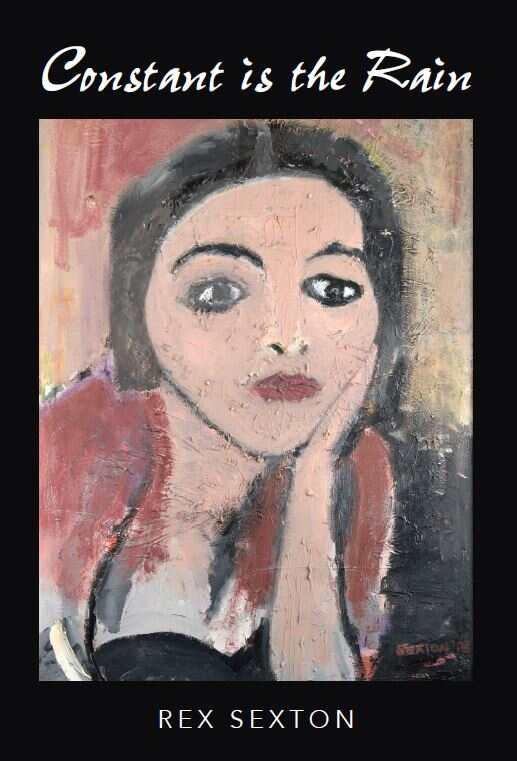Constant is the Rain
Scenes of hardship create an image of a people and country existing without defined meaning.
In this blend of poetry, prose, and artwork, established writer and artist Rex Sexton presents an ugly picture of recession-era America, rife with allusions to the Great Depression and the continual and often-ignored struggles of those in need. Earnest and emotional, Constant is the Rain embraces desperation. In tone, subject, and even diction, a yearning for meaning in a nonsensical world comes to shape much of the text, forming the image of a people and country existing without any defined meaning.
Sexton’s poetry generally forms isolated scenes of hardship and makes up the bulk of the work: “Like crucifixion crosses dangling weary ghosts, / the telephone poles along the lost roads of America / flash past me, eerily, as I rocket down them.” These images, producing small segments of reality, combine to show the complete picture of a fragmented people looking for solace in a world of hard truths. From the individual seeking understanding to the drug addict seeking a reprieve from existence, the characters are at once stereotypes of the standard struggling citizen and easily recognizable and empathetic figures.
Complementing Sexton’s poetry is not only prose but his artwork as well, elevating the book to an attempted complete artistic picture of the United States’ current economic crisis. What’s most impressive about the prose presented here (typically in short story format) is the continued attention to detail in diction and syntax. Wordplay is of paramount importance in both Sexton’s poetry and prose, though never in an esoteric fashion.
Constant is the Rain is readable and intelligible for a wide readership. The result is a work accessible to all that imparts a feeling that it is for the people rather than simply about them. That’s not to say, however, that the collection is flawless; sometimes, it tends toward the trite or overemotional. “When will true / love conquer all? Is there any love in the / world at all?” reads one poem. Discerning readers may find this lack of subtlety problematic. Sexton’s earnestness and direct approach leave no ambiguity in his meaning, which in turn affects the ability of readers to engage with the work—essentially, purpose is told rather than discovered personally.
This considered, Sexton’s work undoubtedly shows a thoughtful examination of an America not in crisis but undergoing extreme fatigue, nearing defeatism in attitude. The complete picture is not a country that inspires pride but one that must be examined and evaluated—warts and all—if it hopes to make a concerted effort toward recovery and restoration.
Reviewed by
Alex Franks
Disclosure: This article is not an endorsement, but a review. The publisher of this book provided free copies of the book and paid a small fee to have their book reviewed by a professional reviewer. Foreword Reviews and Clarion Reviews make no guarantee that the publisher will receive a positive review. Foreword Magazine, Inc. is disclosing this in accordance with the Federal Trade Commission’s 16 CFR, Part 255.

